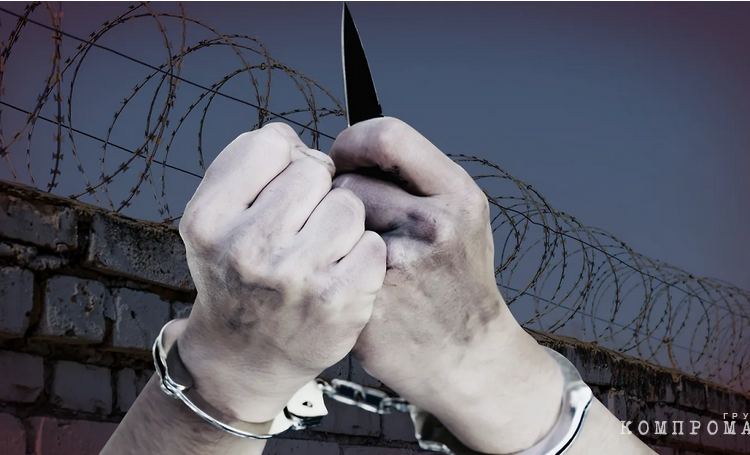The Internet is still discussing the recent hostage-taking of employees of the Rostov pre-trial detention center-1. The prisoners were found to have phones, knives and even an ISIS flag*. The SHOT telegram channel and Life.ru found out how all this ends up in pre-trial detention centers and colonies, and how much the service costs.
Popular products among prisoners and their prices
The most popular illegal goods behind bars are mobile phones and routers, chargers, SIM cards, headphones, alcohol and drugs. Everything that is difficult to obtain has a completely different price than in the wild. The markup is several times higher.
According to the SHOT telegram channel, the hacksaw that the terrorists used to open the window in pre-trial detention center No. 1 in Rostov-on-Don was sold to them in the detention center for 2.5 thousand rubles. Under the counter, one could buy a variety of items there, including prohibited wristwatches (such, for example, were on the hand of one of the Wahhabis), and even pay for film shows in the cell.
For example, in the pre-trial detention center they sold SIM cards for mobile communications. One piece will cost 1–1.5 thousand rubles. A push-button telephone for it will already cost 10 thousand. If you want a smartphone with a touch screen “as if in freedom,” it will cost from 25 thousand for the simplest models.
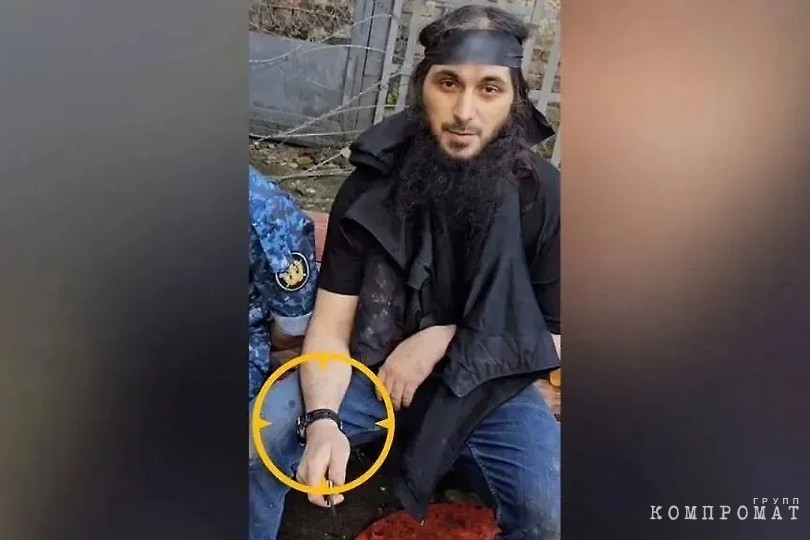 The watch that was noticed on one of the invaders of the Rostov pre-trial detention center
The watch that was noticed on one of the invaders of the Rostov pre-trial detention centerAlcohol in the zone is a liquid commodity and therefore very expensive. Delivering half a liter of vodka to a Rostov pre-trial detention center costs from three to 10 thousand rubles – whoever agrees. Whiskey is even more expensive – about 15 thousand. If drugs on the outside cost an average of 1.5–2 thousand per gram, then behind bars the price reaches one hundred dollars. Cash rubles and dollars are also a popular commodity in pre-trial detention centers and colonies.
How to smuggle prohibited goods
According to SHOT, the employees themselves organized the illegal channel for the supply of prohibited items and services to the institution. Preliminary – department of regime and security of pre-trial detention center-1.
There is an explanation for this. As a source in law enforcement agencies told Life, the salary in the regions of a junior pre-trial detention center inspector is 25–28 thousand rubles per month, so some employees are tempted to make money by delivering to prohibited cells.
However, the risk is great. The FSIN's own security department is not asleep, and it also has a plan to detain corrupt officials.
However, as a source explained to Life, the wholesaler prisoners sitting in the pre-trial detention center try not to contact the staff, because the inspector can only carry one or two phones. It’s easier to order a whole batch of gadgets or other prohibited items through other channels.
To do this, they negotiate with civilian personnel who have access to the pre-trial detention center. For example, van drivers delivering food to prisons, or workers. They are the ones who bring tools, materials, and things into the zone in which the package can be hidden.
In May, a shipment of slippers was intercepted in the capital's Butyrka pre-trial detention center, in which 117 bags of drugs were found. Previously, civilian workers brought cans of paint and bags of construction mixture filled with mobile phones, chargers and headphones to the prison.
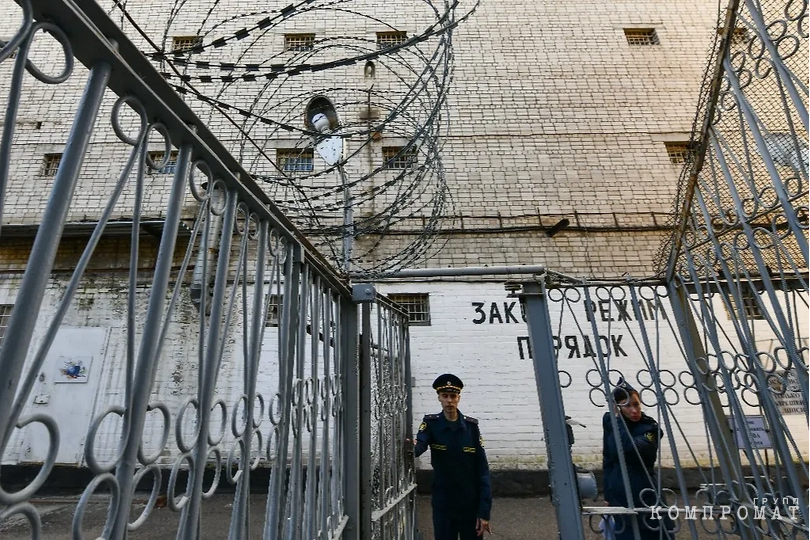 As a source in law enforcement agencies told Life, the salary in the regions of a junior pre-trial detention center inspector is 25-28 thousand rubles a month, so some employees are tempted to make money by delivering to prohibited cells
As a source in law enforcement agencies told Life, the salary in the regions of a junior pre-trial detention center inspector is 25-28 thousand rubles a month, so some employees are tempted to make money by delivering to prohibited cellsAnother channel for prohibition is the economic detachment of the pre-trial detention center. It employs people convicted under “light” charges and whose conditions of detention are much milder than everyone else’s. They have the right to move relatively freely throughout almost the entire territory of the pre-trial detention center and correctional institution. Prisoners receive information from the outside about exactly when and where the parcel will be delivered, so they pick it up at the right time and hand it over to the recipients.
How parcels are sent
The arsenal of funds is perhaps limited only by the imagination of the organizers. For example, in April of this year in Nizhny Novgorod, a large batch of contraband was brought to IK-6 in ordinary propane gas cylinders. They turned out to have a double bottom, in which the colony guards found 130 mobile phones, 115 SIM cards, 4.5 liters of alcohol, gas lighters, yeast, flash cards, adapters, 10 headsets for mobile phones, chargers, components for mobile phones and a lot of little things.
Animals are often used. In May 2024, employees of IK-16 in the Samara region caught a cat, who tried to smuggle a shipment of drugs to prisoners in a collar. Earlier, a cat drug dealer was detained in Tatarstan. The animal, which lived in a detachment with prisoners, was transported to freedom, where the accomplices starved the pet for several days. After that, the attackers put a collar with drugs on the cat and released it not far from the colony where their friend was imprisoned. The colony security was vigilant, the cat was caught, and the forbidden item was confiscated.
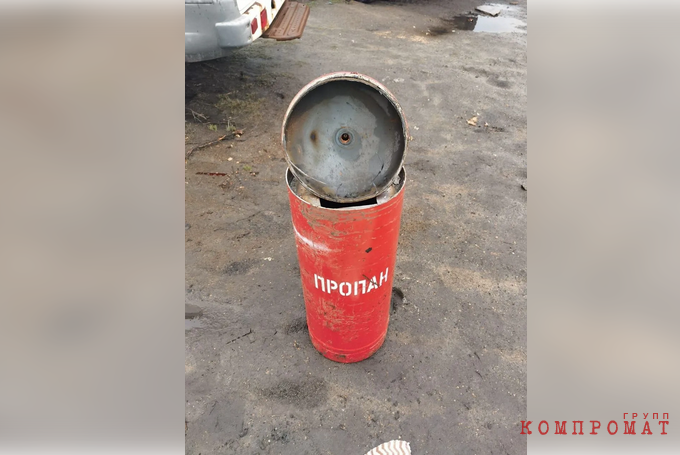 Couriers hid phones in propane tanks
Couriers hid phones in propane tanks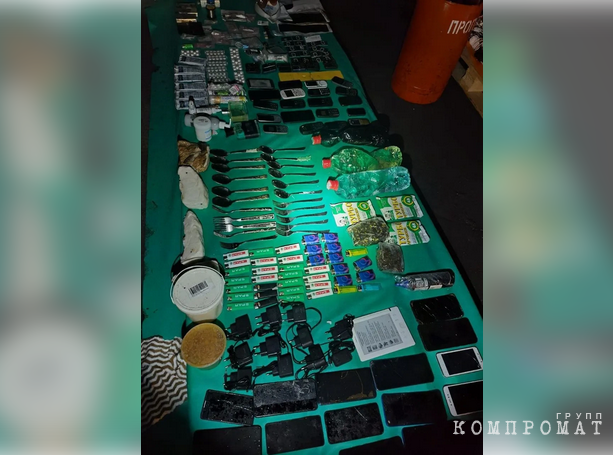 And here are the contents of the parcel
And here are the contents of the parcel The cat that was used to smuggle drugs into the colony
The cat that was used to smuggle drugs into the colony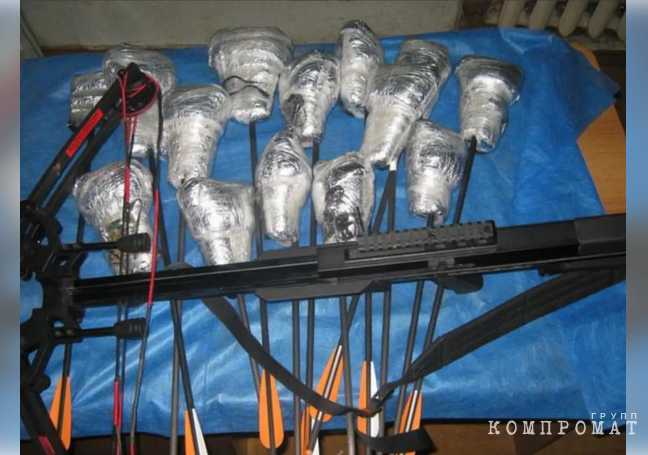 Crossbow for throwing parcels into the colony territory
Crossbow for throwing parcels into the colony territoryParcels are often hidden in food products. For example, in the Urals, they tried to give one of the prisoners a sausage with a phone inside, and in Kamchatka, FSIN officers, when checking parcels, found SIM cards and packages of drugs in the waffles. In the same capital's Butyrka, a batch of drugs was found in a parcel with dates.
Recently, couriers have been using drones, which are capable of “taking on board” about half a kilogram of cargo. Operators launch the birds from a distance of a kilometer and a half and land them directly under the desired windows. Nowadays this kind of transfer is combated with the help of jammers.
Jammers, however, will not help against “crossbowmen”. Drugs and SIM cards are tied to arrows and launched into a protected area.
One of them was caught near Sverdlovsk colony No. 19. At night, the man sailed on a boat to the residential area of the institution and shot into its territory with a crossbow. The sentries were able to respond and detain the shooter. Four arrows were found in the shooter's boat, but he managed to throw the crossbow into the water.
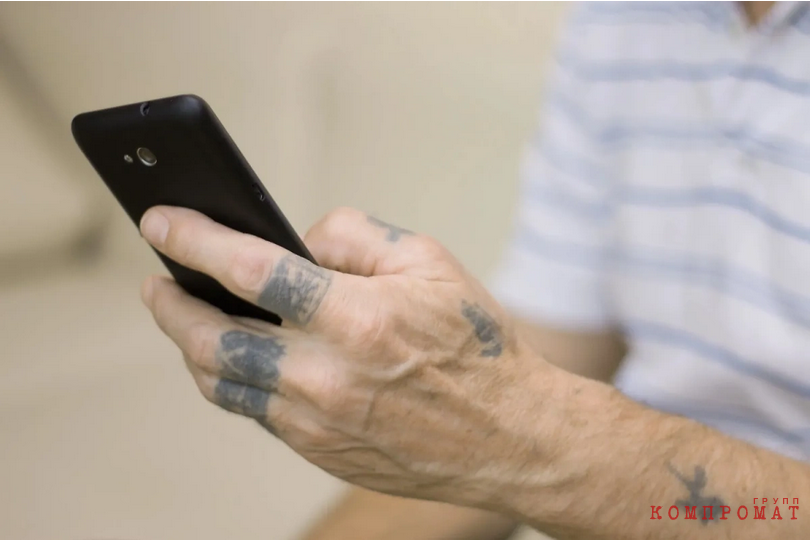 Drugs and SIM cards are tied to arrows and launched into a protected area
Drugs and SIM cards are tied to arrows and launched into a protected areaHow prisoners buy prostitutes
Buying love behind barbed wire is also not a problem. For example, prisoners are served by ladies of easy virtue, registered as lawyers.
There were cases when prisoners were given love by human rights activists. Several years ago, attractive members of the Public Monitoring Commission began to frequent IK-3 in the Sverdlovsk region. The girls were given the opportunity to meet clients indoors without security or video surveillance. The conversation about prison life ended in intimacy. One of them, Larisa, repeatedly visited the imprisoned crime boss.

